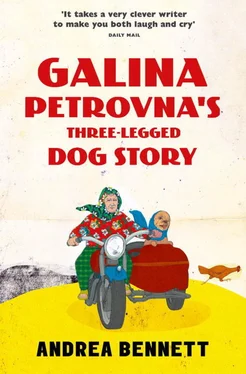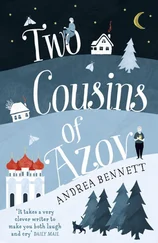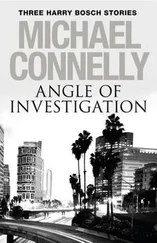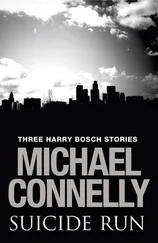‘It’s a shame you didn’t introduce me though, Galina Petrovna. I could have made a connection. Students need connections. But well done on getting home on your own, and changing out of those ridiculous costumes.’ And with that he disappeared behind the door.
The taxi ride out to the airport was thankfully uneventful. Zoya seemed to have spent all her forces on the unfortunate rose bushes, and simply dozed, ashen-faced but with a frown still in place, as the car bumped its way through the outskirts of the city, regularly taking crazy detours across the dual-carriage way to avoid potholes that could swallow a whale. The silver birches wavered gently in the summer breeze as they crossed the city limits, passing the impressive memorial of giant iron exes that marked the limit of the Nazi’s progress during the Great Patriotic war. So close to the capital, so close to the seat of power: despite herself, Galia couldn’t help the shudder of respect that passed down her spine as she thought of Stalin pacing in the Kremlin, hands behind his back and moustaches twitching, refusing to be evacuated, refusing to be moved from Moscow even though the fascists were almost at the city gates. Thank God for the Russian weather, and the Soviet soldiers who fought on, ill equipped and barely fed, to defend their motherland.
And therefore, perhaps, thank God for Pasha too, long half-forgotten, but not quite invisible in her past. Pasha, who had fought after a fashion, and fed the soldiers what he could find. Pasha, who had lived with her in that flat, shared a bed with her, had sat at that same kitchen table, but who left only empty shoes and grey shirts with frayed collars when he died.
Galia eased her shoulder under Zoya’s nodding head, and observed her friend’s sleeping face. She wondered how this old friend, well known, whose hand she’d held in adversity, and whom she’d shared a laugh with at least every week for the last forty years, could still present her with mysteries. She was an enigma, this Zoya. But an amusing one, Galia had to admit. She examined the back of Grigory Mikhailovich’s head as he sat, grey and monumental, in the front seat of the taxi. She should thank him for his part in arranging Pasha’s visit to the sanatorium at Kislovodsk, long ago and unsuccessful as it was. It didn’t feel right not to mention it. He had been kind, in his own way, and now that they had achieved their mission of meeting with the Deputy Minister, or Roma as Galia referred to him in her head, she had time to feel thankful.
They made their way through the departure terminal, squinting in the sunlight at the huge and puzzling information boards for a clue as to which direction to shuffle in and at what time. The whole airport was high and airy and full of chrome and bright electric light. It was totally alien. Zoya was suffering and could barely lift her eyes from the shiny tiled floor. Galia had to guide her as a mother leading a small, slightly straggly, purple-haired child. They drew no quizzical glances though: the airport was full to the shiny chrome gills with the odd, the unusual and the slightly bizarre. This building was no homage to internal flights only: from here, you could get to all four corners of the world, and meet any kind of person you desired to. And suddenly, Galia had had enough of the bright lights and the noise and the odd people, and dearly, dearly wanted to get back home, to normality.
‘Grigory Mikhailovich! It’s Rov Avia, I believe, for Rostov on Don, and the ticket booth is over there, in the far corner. You see, with the red-and-white signage?’ Galia needed to take control and get home, otherwise she could see the three of them still bumbling around this shining monstrosity for days to come.
Grigory Mikhailovich nodded dumbly and set off across the concourse at the pace of a dead goat. Galia plonked Zoya down in a very uncomfortable-looking shiny chrome-and-plastic chair, and examined the departure board as her friend began to slide gently towards the floor. Only one hour and she would be on the way home. She crossed her fingers for luck and then crossed herself with the crossed fingers for yet more luck. Galia heard Zoya squeak as she slipped from the chair on to the floor. She scooped her friend back up and propped her more firmly into the seat by wedging the travel bag in between her and the wall.
‘Thank you, Galia. When do we fly?’
‘One hour, Zoya.’
‘Excellent. I shall sleep, sleep perchance to dream,’ and with that Zoya curled over the travel bag and fell into a deep and dark sleep that was immediately more impenetrable than the deepest mediaeval forest or darkest well. Galia wished her goodnight and, with a sigh, looked around for Grigory Mikhailovich.
She eventually located him resting on a kiosk selling girly magazines, hairnets and yoghurt pots containing the cheapest vodka known to man.
‘Hair of the dog, so to speak, Galina Petrovna.’ He wiped his mouth with the back of his hand and dropped the two empty pots into the over-flowing waste bin, before straightening the red-flag pin in his lapel and allowing Galia to frog march him gently to the Rov Avia desk.
‘Buy the tickets, please, Grigory Mikhailovich: Zoya and I have a plane to catch.’
‘Yes, madam. My pleasure.’
He began the laborious process of ordering the tickets, from a lady who seemed not in the least interested in providing him with anything at all, apart from evil looks with a side-order of rasping sighs.
‘Grigory Mikhailovich—’ Galia began, but broke off.
He turned to her slowly, frowning a mild enquiry at her hesitant tone. His blue eyes looked in to hers.
‘I’d like to thank you, Grigory Mikhailovich, for a favour you did for me a long time ago. You probably don’t remember—’
He raised an eyebrow and waited for the question, his face otherwise as blank as an empty desk.
‘You organised a visit to the sanatorium at Kislovodsk, for my husband, a long time ago. It didn’t save him, in fact he came back worse than before he went, but it was still a kind thing to do. I never knew until the other day that you and Zoya were involved in organising it.’
‘Kislovodsk? Your late husband, good lady? I have no clue what you are talking about. I am here to buy your tickets, and that is all, I believe.’
‘Zoya told me, Grigory Mikhailovich. Zoya told me… well, she said it was classified information, but she said you fixed it. It was kind.’
Still he looked at her blankly. ‘What year are we talking about, madam?’
‘It was 1956, Grigory Mikhailovich, forty years ago. Another lifetime ago. I hadn’t thought about it for ages, but then, she mentioned it, and it came back, like it was yesterday.’
Grigory Mikhailovich pulled a dirty yellow handkerchief from his trouser pocket and coughed into it, but said nothing. The woman behind the desk thrust various bits of paper at him, and he signed them with much deliberation and an unsteady hand. He handed them back and turned to Galia, about to speak.
‘No, Elderly Citizen! You’ve signed in the wrong boxes! I’m going to have to do the whole form again.’ The woman behind the counter pounced on the pen, tearing it from Grigory Mikhailovich’s slackening grip, and started shredding the papers with a ferocity that sent strips of mangled paper high into the air. ‘You old Commies, you’re all the same: can’t cope with modern life. You need to get your lives in order! There’s no Lenin now, you know!’
‘Lenin? Where is he?’ He looked around wildly for a moment, his chins wobbling with the effort. ‘We must call to Comrade Sasha, if Lenin is—’
‘No, no, Grigory Mikhailovich, we’re only here to buy the tickets. We don’t need to call anyone,’ Galia broke in, concerned that they were about to get side-tracked by searching for Lenin.
Читать дальше
Конец ознакомительного отрывка
Купить книгу










